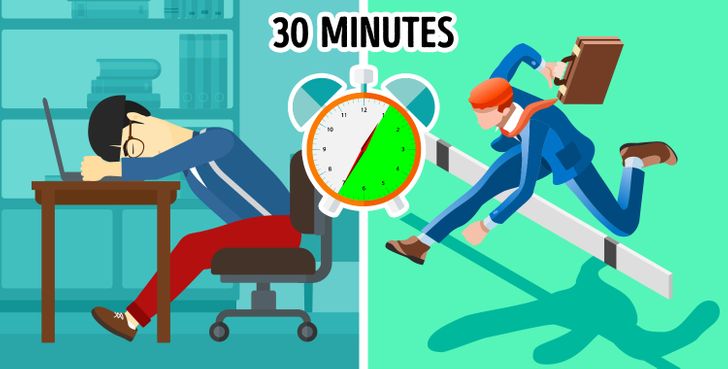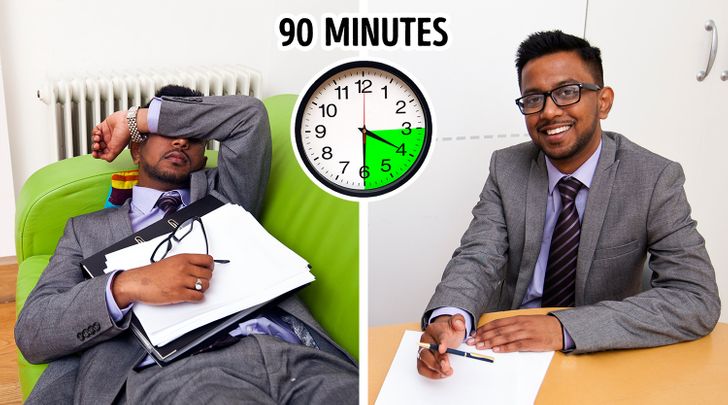I think that taking a nap durant the day is essentially important for our body, because sometimes we need to relax
Scientists Claim Taking a Nap Can Prevent Diseases, Improve Your Memory, Speed Up Weight Loss, and Even More
A quick nap in some cultures is considered to be a sign of laziness, while in other cultures, like in Japan, it is viewed as a sign of dedication to work. Whatever your beliefs, we have all experienced that taking a power nap is refreshing and boosts our mental agility, and even science recommends doing it.
To help you decide how much time you must spend napping and what the associated benefits are, Bright Side presents to you a quick guide to napping.
10-20 minutes: For a quick boost of alertness
According to experts, a power nap of 10-20 minutes gives you the best bang for your buck. It is ideal for boosting alertness and increasing energy levels. The short duration of a power nap is designed to prevent nappers from entering deep sleep. This enables hitting the ground running, after just waking up.
But as we all know, coming out of sleep after getting the sweet taste of it is difficult, so it’s recommended to perform it sitting slightly upright. Also, taking it after lunch, at around 3 or 4 PM, will help to stave off cravings for junk food and reduce the stress hormones that cause the body to hold on to weight, thereby aiding weight loss.
30 minutes: To say goodbye to fatigue
While taking a 30 minute nap might make it even more difficult to come out of it, the benefits that it presents are worthy of the pain. This short nap has been shown to improve memory functioning, reduce stress, increase focus, lower the risk of diabetes, and prevent dementia. Experts say that you will be doing more good for yourself by indulging in a 30 minute nap at mid-day, since the body and brain, after being awake for 7-8 hours, need to be rejuvenated.
60 minutes: For cognitive memory processing
If your work involves a lot of mental activity, this might be the perfect nap duration for you. With one hour of sleep, you also get some deep sleep, which helps unclog the brain and increases its cognitive ability, as well as, its ability to remember facts and figures. It also helps fight frustration. On the flip-side, however, entering deep sleep will mean that you will wake up feeling a little groggy and have to spend some time freshening up.
90 minutes: Full sleep cycle
This is a full sleep which includes both the light and deep stages of sleep. You may also experience REM (rapid eye movement), a stage linked to dreaming. According to sleep researcher Dr. Sara Mednick, a 90 minute nap is beneficial for both physical and mental health. It improves memory and enhances creativity. And the best part is that it’s easier to wake up from this nap without feeling groggy.
Benefits of napping
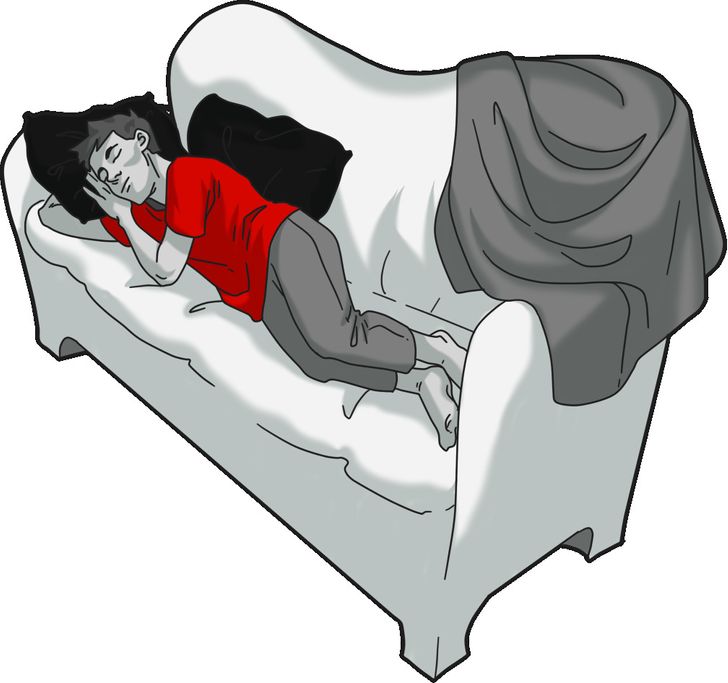
So, which nap is best for you? Do you often take “nap breaks” during the day? Let us know what you think in the comments below!
Comments
I don't know about others, but I usually feel exhausted after a nap no matter how long it is.
I take 10 minutes nap every evening at about 3 pm...i have felt it helps maintain energy late in the evening when I am at the office after 7 pm.
Related Reads
12 Serious Discoveries That Altered Lives in a Split Second

13 People Who Experienced Real-Life Plot Twists

I Excluded My Stepson From Our Family Vacation

I Threw My Stepmom Out of My Dad’s House — It’s Not a Free Hotel

14 Strange Requests That Assistants Received at Work
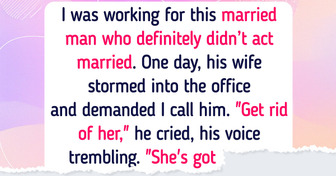
My In-Laws Invited the Whole Family to a Gathering — But Left My Children Out
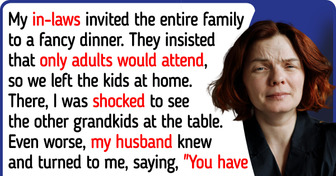
“He Got Himself a Younger Lisa,” Jason Momoa’s New Girlfriend Bears a Striking Resemblance to His Ex-Wife

I Spent Years Saving for an Engagement Ring, and It Vanished Without a Trace

12 People Who Were Even More Terrified After Discovering the TRUE Causes of Eerie Events

My MIL Stole My Credit Card and I Reported Her

I Discovered My Wife’s Secret Google Photo Gallery and Feel Utterly Disgusted

12 People Who Uncovered a Dark Reality Many Years Later


